西安工业大学建筑工程学院给排水科学与工程专业简介

西安工业大学建筑工程学院给排水科学与工程专业简介内容如下,更多考研资讯请关注我们网站的更新!敬请收藏本站,或下载我们的考研派APP和考研派微信公众号(里面有非常多的免费考研资源可以领取,有各种考研问题,也可直接加我们网站上的研究生学姐微信,全程免费答疑,助各位考研一臂之力,争取早日考上理想中的研究生院校。)
微信,为你答疑,送资源

西安工业大学建筑工程学院给排水科学与工程专业简介 正文
给排水科学与工程专业培养方案The Specialty Training Scheme of Water Supply and Wastewater Engineering
专业编号Specialty Code:081003
学制Years of study:四年Four years
一.培养目标
I. Educational Objectives
本专业面向区域经济和国防工业,培养德、智、体、美全面发展的富有创新精神的应用型高级专门人才。通过本专业的系统学习,使学生具有坚实的数学、化学等自然科学基础和人文社会科学知识,较高的外语水平和计算机应用能力;使学生掌握给排水科学与工程专业的理论知识,获得工程师基本训练,能胜任给排水科学与工程有关的工程规划、设计、施工、运营、管理等工作,并具有初步的研究开发能力。毕业后五年左右具有以下基本技能:
1.具有可持续发展的价值观和社会责任感,形成坚守执业规范的行为和职业操守;
2.具有在城市给水工程、排水工程、建筑给排水工程等各类工程相关领域、行业和技术体系内主持或参与工程项目分析、设计与开发的专业能力;
3.具有良好的团队交流和一定的领导能力,能够独立组织或参与实施给排水科学与工程相关领域的项目;
4.具有终身学习的追求和能力,逐步开拓国际视野,在专业工作中能够持续适应不断变化的自然环境和社会环境;
5.具有健强体魄和健康的心理素质,能够承担未来几十年的社会责任和专业重任。
The Specialty, oriented to the regional economy and the national defense industry of china, is aimed to cultivate the practical-type of senior specialized talents with all Round Development of Moral, Intellectual, Physical education,Aesthetics and innovativeness . Under the professional systemic leaning, the student could have a solid base of natural sciences (such as mathematics, chemistry and humanities & social science knowledge) and a higher level of foreign language and computer application ability. By obtaining theoretical knowledge and emphasizing the basic engineer training, the students of water supply and wastewater engineering could be competent to works including planning, designing, building, operating and managenment, even further possessing the ability of preliminary research and development. About five years after graduation, the students will have the following basic skills :
1.Should have understood the sustainable development values and social responsibility, and hold one's ground on professional standards professional ethics.
2.Should have the ability to manage or participate in a project analysis, design and development on the region of water supply engineering, wastewater engineering and building water system design and drainage engineering.
3.Should be able to conduct an effective team-member exchange, or have established a good leadership, or be adequate to do a given engineering project independently.
4.Can adapt to the continuous changing natural environment and social environment as a result of the lifelong learning consciousness and expanded international vision,
5.Should have a strong physique and healthy psychological quality to undertake the social and professional responsibility for the next few decades.
二、毕业要求
II. Program Outcomes.
毕业生应获得以下几方面的知识和能力:
1.工程知识:掌握工程制图和工程测量的基本知识和技能;熟悉电工电子学和自动控制的基本知识,能够将数学、自然科学、工程基础和专业知识用于解决给排水专业中的复杂工程问题。
2.问题分析:掌握给排水的基础理论知识,能够应用数学、自然科学和工程科学的基本原理,识别、表达、并通过文献研究分析给排水专业中复杂工程问题,以获得有效结论和合理的解决方案。
3.设计/开发解决方案:能够设计针对给排水专业中的复杂工程问题的解决方案,设计满足特定建筑物的给排水系统,消防系统,或者城市的给排水系统,或者特殊的给水水源水质,污水水质,或工业给水及废水的处理工艺流程,并能够在设计环节中体现创新意识,如节能减排设计理念,新型的水处理工艺等,并考虑社会、健康、安全、法律、文化以及环境等因素。
4.研究:能够利用给排水专业相关的科学原理和并采用科学的方法,对给排水复杂工程的问题进行研究,包括设计实验,分析与解释数据、并通过信息综合得到合理有效的结论。
5.使用现代工具:应具有综合应用各种方法查阅文献和资料的能力,能够针对给排水专业中的复杂工程问题,选择与使用恰当的技术、资源、现代工程工具和信息技术工具,解决复杂工程。
6.工程与社会:能够基于给排水工程相关背景知识进行合理分析,评价专业工程实践和复杂工程问题解决方案对社会、健康、安全、法律以及文化的影响,并理解应承担的责任,如给水厂,污水厂的建设,复杂建筑物内消防系统的设计等。
7.环境和可持续发展:能够对给排水专业相关工程进行规划,考虑社会,经济,人文等各方面的因素,如对城市给排水管网的改造,扩建或新建工程提出合理的方案,并考虑长远的使用;能够理解和评价针对复杂工程问题的专业工程实践对环境、社会可持续发展的影响,保护环境,节约水资源。
8.职业规范:了解工程规划、工程设计的相关程序和有关文件要求;了解给排水专业有关的法律、法规、标准和规范;具有人文社会科学素养、社会责任感,能够在工程实践中理解并遵守工程职业道德和规范,如设计施工等,严格按照国家相关规范,标准和规定,履行责任。
9.个人和团队:能够在多学科背景下的团队中承担个体、团队成员以及负责人的角色,在以后的工作中,能认真完成任务,积极配合团队工作,并承担相应的项目等等。
10.沟通:能够就给排水专业中复杂工程问题与业界同行及社会公众进行有效沟通和交流,包括撰写给排水项目的招标报告,论证报告,和工程设计计算说明书,以及进行陈述发言、清晰表达或回应指令。并具备一定的国际视野,和国际接轨,能够在跨文化背景下进行沟通和交流。
11.项目管理:理解并掌握给排水工程管理原理与经济决策方法,并能在多学科环境中应用,能够从事给排水专业相关的运营工作,如给水厂的生产,污水厂的生产等。
12.终身学习:具有自主学习和终身学习意识,有不断学习和适应发展的能力。
A student should obtain the following aspects of knowledge and ability before graduation:
1.Engineering Knowledge: Should master the basic knowledge and skills for engineering survey and engineering drawing, and familiar with the basic knowledge of the electrical and electronics, and the automatic control related course, and also the ability to using the studied knowledge of mathematics, natural science and engineering foundation, and professional knowledge to solve the complex engineering problems meet in the region of water supply and Wastewater Engineering.
2.Problem Analysis:Should master the basic theoretical knowledge of the water supply and Wastewater Engineering, and can identify, express, and analyze the complex specialized engineering problems through literature research to obtain effective conclusions or reasonable solutions by using the related theory basis of applied mathematics, natural science and engineering science.
3.Design/Development Solutions: should be capable of designing an optimal scheme for complex specialized engineering problems(such as design a water supply system, drainage system,and fire control system for a building/city, or plan a technological process for industrial water supply and wastewater treatment according to the particular source water quality and wastewater quality)on Water Supply and Wastewater Engineering. By the way, the scheme also need to be integrates with the concept of innovativeness, progressiveness, energy-saving and environmental protection under the consideration of the social, health, safety, legal, cultural and environmental factors.
4.Research aspect: be able to conduct a complex specialized study scientifically, including the experiment design, data analysis and interpretation, and eventually reasonable and effective conclusion through information comprehensive, and by using the Specialty related scientific principle.
5.Modern Tools Usage: have the ability to consult document and data comprehensively by means of various methods, and can solve complex engineering problems based on the selection and use of appropriate technology, resources, tools of modern engineering and information technology.
6.Engineering and society: be capable of using the specialized background knowledge to analyze or evaluate the impacts of professional engineering practice and complex engineering solutions (such as waterworks and sewage plant construction, and complex building fire system design) on the social, health, safety, legal and culture aspects, and understanding the relevant responsibility.
7.Environment and sustainable development: the ability to program a professional engineering (e.g., Put forward a reasonable plan of transforming, extending, or building a urban water supply and drainage pipe networks with consider the long-term use), and evaluate the impact of complicated problems in professional engineering practice on environmental & social sustainable development based on understand the environmental protection and water conservation.
8. Professional specification: should have understood the procedures of project planning and engineering design, also the requirements of relevant documentation(including the laws, regulations, standards and norms)relates to the specialty of Water Supply and Wastewater Engineering. Furthermore, they also need understood the engineering ethics then consciously observe the Codes of Ethics under the humanities & social sciences accomplishments and accordingly social responsibility, for example, a project should be designed or constructed according to the issued related regulations, standards and norms.
9. Individual and teamwork: be able to complete a given task (e.g., engineering project) seriously and individually, or undertake the work actively as members or leader of a multidisciplinary team after graduation.
10.Communication: be able to communicate and commune effectively with professional peers or the publics on a complex engineering problems in the region of Water Supply and Wastewater Engineering, for example, writing Bid Inviting Report, Verification Report, Calculation Manual of an engineering design, as well as making a statement or response clearly. Moreover, they should have possessed an international view, and communicate and exchange under the cross cultural background.
11.Project Management: should understand and grasp the management principles and economic decision methods of water and wastewater engineering, as well as application in multidisciplinary environment. Furthermore, they can be engaged in the operation of water supply and drainage, such as the operation of water supply plant and wastewater treatment plant.
12.Lifelong self-learning: have the ability to keep up with the professional and social development by the awareness of self-learning and lifelong learning.
三、主干学科及相关学科
III. Primary Discipline and Related Discipline
主干学科:土木工程
Primary Discipline(s):Civil Engineering
相关学科: 环境工程
Related Discipline(s):Environmental Engineering
四、核心课程
IV. Core Course
水分析化学、水处理生物学、工程力学、水力学、水文学与水文地质学、土建工程基础、给排水科学与工程概论、水质工程学、泵与泵站、水资源利用与保护、给水排水管网系统、建筑给水排水工程、水工艺设备基础、给排水工程仪表与控制、水工程施工、水工程经济。
Water Analytical Chemistry 、Biology for Water and Wastewater Treatment、Engineering mechanics、Hydraulics、Hydrology and Hydrology、Foundation of Civil Engineering、An Outline of Water Supply and Drainage Science & Engineering、Water Quality Engineering、Pump and Pumping Station、Utilization and Conservation of Water Resources、Water and Wastewater Pipe Network System、Engineering of Water Supply and Drainage in Building、Water Treatment Procedure Equipment Base、Instrument and Control of Water Processes and Engineering、Construction of Water and Wastewater Engineering、Water Engineering Economy.
五、实践教学环节
V. Professional Practice
实验类:大学物理实验、大学化学实验、微生物与水处理实验,水力学与水泵实验、水分析化学实验。
实习与实训类:金工实习II、测量实习、认识实习、生产实习、毕业实习、创新创业实训。
设计类:泵与泵站课程设计、给水管网课程设计、排水管网课程设计、给水处理课程设计、污水处理课程设计、建筑给水排水工程课程设计、毕业设计。
Experiment: Experiment of College Physics、Experiment of General Chemistry、Experiment of Microorganism and Wasterwater;Experiment of Hydraulics and Pump;Experiment of Water Analysis Chemistry.
Practice and Training: Metalworking Practice Ⅱ、Surveying Practice、Acquaintanceship Practice、 Production Practice、Graduation Practice、Innovation and Entrepreneurship Practice.
Design :Course Design of Pump and Pumping Station、Course Design of Water Supply Network、Course Design of Drainage Pipe Network、Course Design of Water Treatment、Course Design of Wastewater Treatment、Course Design of Engineering of Water Supply and Drainage in Building、Graduation Design.
七、学位
VII. Degree
工学学士学位
Bachelor’s Degree in Engineering
八、毕业条件
VIII. Graduation Requirements
毕业总学分:179.5+7学分(包含第二课堂7学分)
必修课91.25学分,选修课41.25学分,实践教学环节47学分。
第二课堂:创新与技能7学分。
取得总学分,方可准予毕业。
A bachelor degree requires 179.5+7 credits (inclusive of 7 credits for extracurricular activities)
including:
91.25credits for required courses, 41.25credits for elective courses, 47 credits for professional practice and 7 credits for innovation and skills .
The student who achieves the total credits will be awarded an undergraduate diploma.
西安工业大学
添加西安工业大学学姐微信,或微信搜索公众号“考研派小站”,关注[考研派小站]微信公众号,在考研派小站微信号输入[西安工业大学考研分数线、西安工业大学报录比、西安工业大学考研群、西安工业大学学姐微信、西安工业大学考研真题、西安工业大学专业目录、西安工业大学排名、西安工业大学保研、西安工业大学公众号、西安工业大学研究生招生)]即可在手机上查看相对应西安工业大学考研信息或资源。
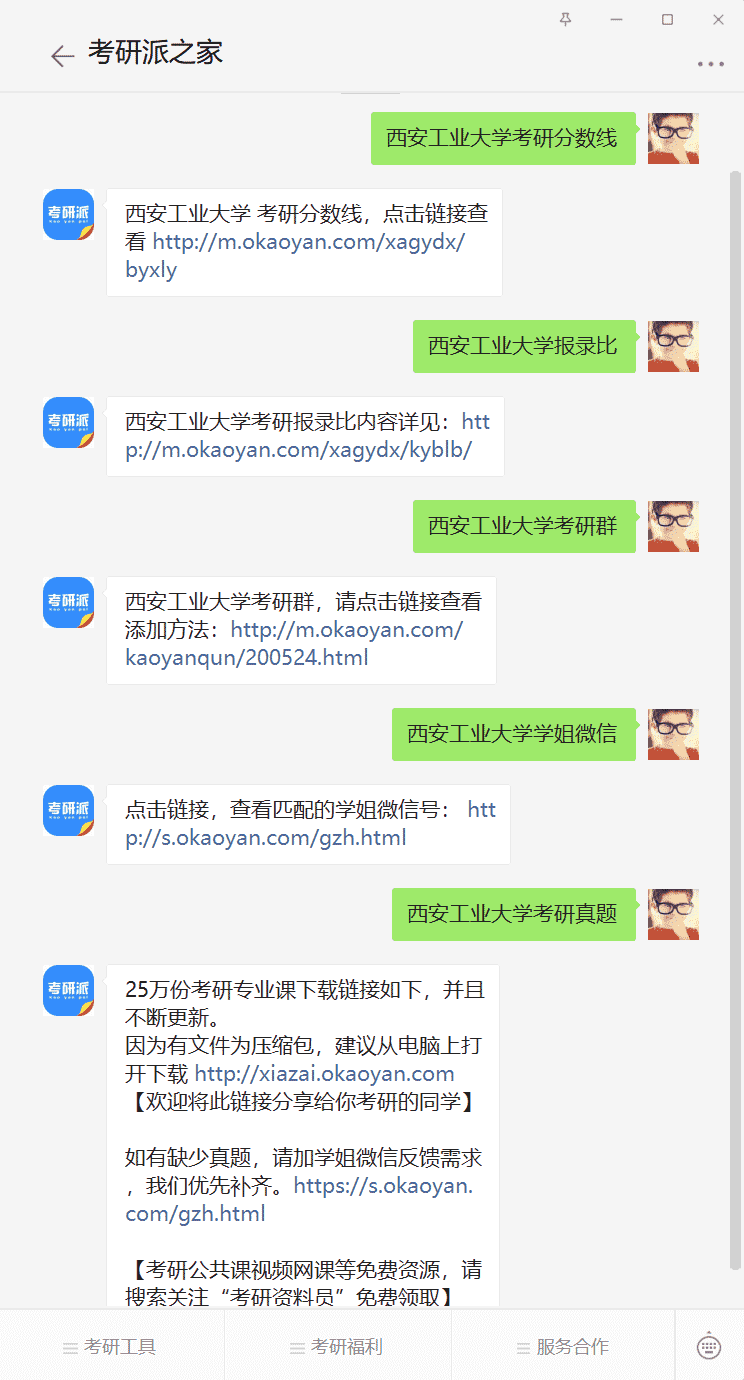

本文来源:http://www.okaoyan.com/xagydx/yjsy_330125.html
推荐阅读
-

关于对2019年立项建设的校级研究生联合培养基地进行验收的
各有关单位:年,学校立项建设了个校级研究生联合培养基地,并由研究生院与各基地负责人签订了《西安工业大学研究生联合培养基地建设项目责任书》,确定各个基地的建设任务和目标。目前……
日期:12-03 阅读量:23956 -

2022年全国硕士研究生招生考试西安工业大学考点(6105)网报
各位考生现将年全国硕士研究生招生考试西安工业大学考点相关公告信息通知如下:一、我校考点设在西安工业大学未央校区。地址:陕西省西安市未央区学府中路号二、我校接收考生范围及确认……
日期:09-29 阅读量:22965 -

西安工业大学研究生奖学金评定办法
一、招生类型我校年博士研究生继续实行秋季、春季两次招生,秋季博士招生形式:申请考核、硕博连读,仅招收非定向全脱产学习考生。具体参照西安工业大学博士研究生招生选拔工作管理办法……
日期:07-23 阅读量:24089 -

西安工业大学研究生学费标准
一、报到日期:我校新生报到日期定于年月日(周四)报到地点:西安工业大学未央校区。二、新生需持《录取通知书》和本人有效居民身份证按时报到。因特殊情况不能按期报到者,本人应以书……
日期:07-23 阅读量:23667 -
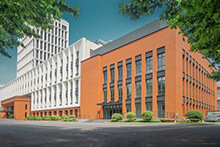
2021考研西安工业大学拟录取名研究生单公示
近日,研究生拟录取名单已出。考研的同学们有没有关注?今天考研派小编就整理了西安工业大学年硕士研究生招生考试拟录取名单的相关内容,希望能对大家有所帮助。点开此链接可查看:……
日期:05-22 阅读量:2627 -

西安工业大学光电工程学院2021年博士研究生复试录取工作实
根据《西安工业大学博士学位研究生招生选拔工作管理办法(试行)》的精神要求,为保证博士研究生招生录取工作的公开、公平、公正,体现按需招生、德智体全面衡量、择优录取、宁缺毋滥的……
日期:05-18 阅读量:21935 -

关于公布2021年西安工业大学博士研究生招生考试考生进入复
各位考生:根据教育部相关文件,结合我校实际情况,现将我校年博士研究生招生考试考生进入复试分数要求公布如下:外国语分,业务课分,总分分……
日期:05-18 阅读量:23341 -
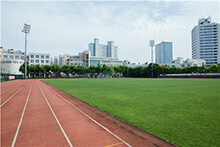
关于公布2021年西安工业大学博士研究生招生考试考生进入复
各位考生:根据教育部相关文件,结合我校实际情况,现将我校年博士研究生招生考试考生进入复试分数要求公布如下:外国语分,业务课分,总分分……
日期:05-17 阅读量:21703 -
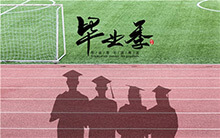
西安工业大学工业中心电装工艺装配教研室简介
电装实习是我校本科生的必修课,深受历届学生的喜爱与欢迎。通过该课程的实训教学,可以促使学生将零散的理论知识应用到具体的实践中,使学生获得扎实的理论基础,提升实践动手能力。该……
日期:06-08 阅读量:23085 -

西安工业大学工业中心机械制造基础教研室简介
机械制造基础教研室成立于年,主要承担有关机械制造基础课程建设、教学实施、师资培养、教材建设、教学研究等教学任务。教研室共有教师五人,其中高级职称人、副高职人,中级职称人。近……
日期:06-08 阅读量:24743 -
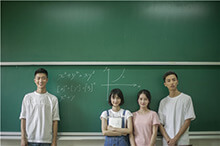
西安工业大学工业中心联系方式
电话(总机):地址:陕西省西安市未央区学府中路号邮编:……
日期:06-08 阅读量:24595 -
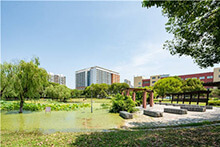
西安工业大学工业中心简介
工业中心是全校大学生工程素质教育和技能培训的重要实践教学基地,是学生创意、创新、创业的基地。工业中心实践教学主要分为五个层次:工业系统认知训练、基础工程训练、现代工程系统训……
日期:06-08 阅读量:2558 -
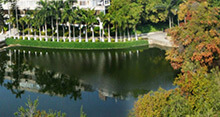
西安工业大学中国书法学院艺术硕士专业简介
培养目标:美术领域艺术硕士专业学位教育,旨在培养具有良好职业道德、具备系统专业知识与技能的高层次美术创作专业人才,以及胜任文化艺术事业与产业方面所需的创作、管理与策划等相关……
日期:06-08 阅读量:23472 -

西安工业大学中国书法学院书法学专业简介
专业介绍:书法学专业于年开始招生,是西北地区最先招收书法本科生的高校,以适应人们日益增长的物质与文化艺术生活的需要,适应书画艺术市场发展的需要。师资力量雄厚,教学条件优良。……
日期:06-08 阅读量:24801 -
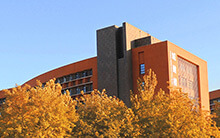
西安工业大学中国书法学院联系方式
电话(总机):地址:陕西省西安市金花北路号邮编:……
日期:06-08 阅读量:21572 -
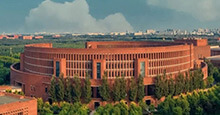
西安工业大学中国书法学院简介
从世纪年代起,著名书法家刘自椟、陈泽秦两位先生就在西安工业大学任教,使学校形成了非常浓厚的书法教育氛围。在这两位教授的亲自领导下,西安工业大学从年开始组建书法教学团队,坚持……
日期:06-08 阅读量:21316 -

西安工业大学体育学院社会体育指导与管理专业简介
目前我系有两个本科专业,设有社会体育指导与管理专业,体育教育专业。两专业在校学生数余人。社会体育指导与管理专业年我院取得社会体育指导与管理专业的招生资格,年月招收第一批学生……
日期:06-08 阅读量:21706 -

西安工业大学体育学院体育教育专业简介
一、体育教育专业简况体育教育专业是西安工业大学体育学院的两个本科专业之一,年取得招生资格,年月招收第一批学生(共人),目前本专业在校学生有人,其中届毕业生有人。伴随学院整体……
日期:06-08 阅读量:22664 -

西安工业大学体育学院群体竞赛部简介
群体竞赛部群体竞赛部在学院领导下,主要承担我校全日制在校本科生的群体活动、体育竞赛训练工作及承办各种大型比赛任务,依据陕西省大学生体育协会竞赛计划制定我校年度群体竞赛计划安……
日期:06-08 阅读量:21082 -

西安工业大学体育学院公体教学部简介
公体教学部公共体育教学部主要承担我校全日制在校本科生、北方信息工程学院在校本科生公共体育课、公共体育选修课教学、《国家学生体质健康标准》测试、统计、上报等各项体育教学工作。……
日期:06-08 阅读量:24356


































































